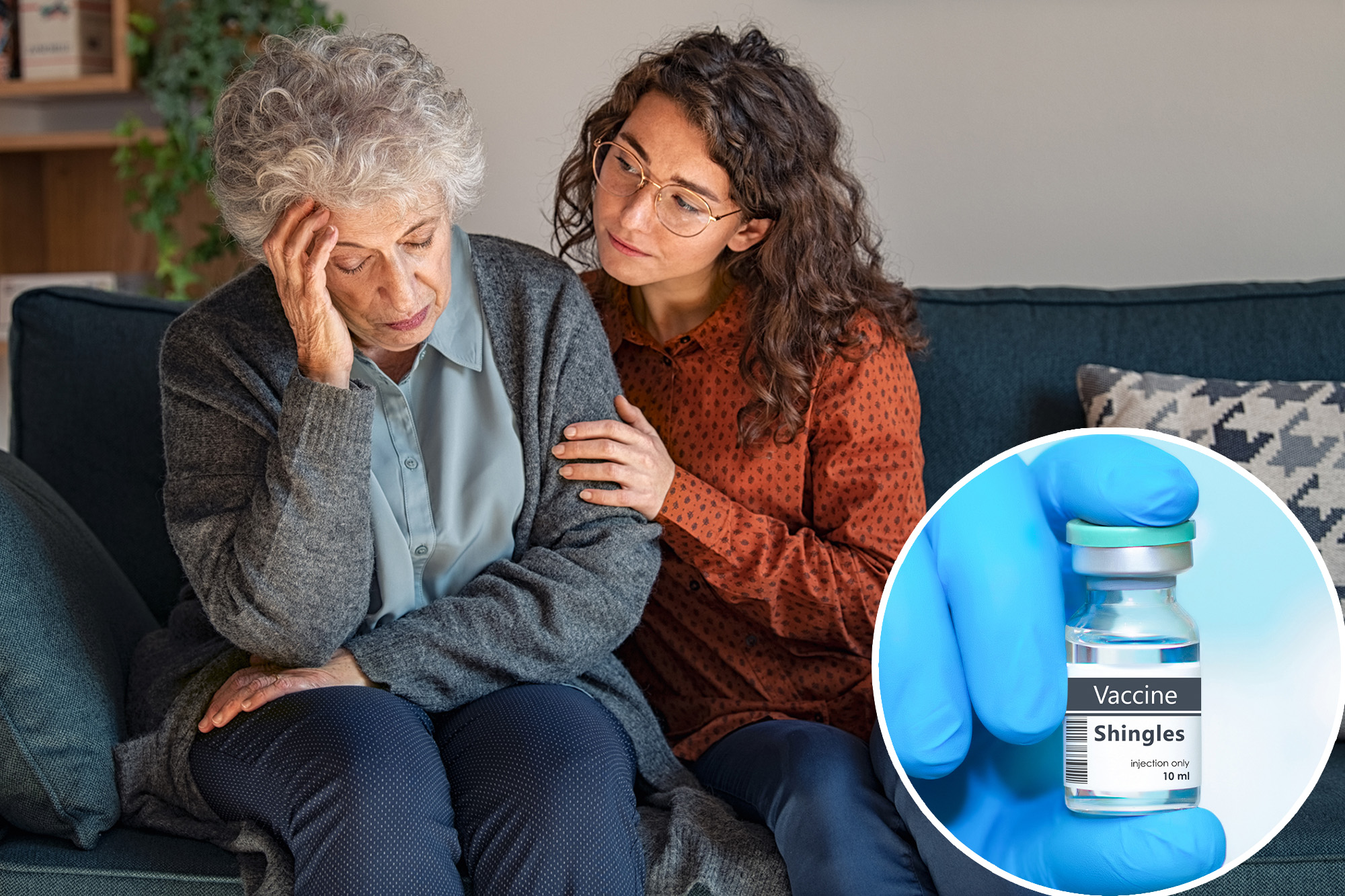
A vaccine to fight madness? It turns out that it can already be one – shots that prevent painful shingles also seem to protect the aging brain.
A new study found that herpes vaccination reduced the elderly risk of developing dementia over the next seven years by 20%.
The research, published Wednesday in the journal Nature, is part of a growing meaning on how many factors affect brain health while we are aging – and what we can do about it.
“It is a very strong finding,” said the main researcher Dr. Pascal Geldsetzer from Stanford University. And “women seem to benefit more”, which is important as they are at a higher risk of dementia.
The study tracked people in Wales who were about 80 when they received the world’s first -generation vaccine for shingles over a decade ago. Now, Americans 50 and older are required to receive a newer vaccine that has been proven more effective against Herpes than its predecessor.
New findings add another reason for people to consider to roll their sleeves, said Dr. Maria Nagel of the University of Colorado Anschutz Campus Medical, who studies viruses that penetrate the nervous system.
The virus “is a risk to dementia, and now we have an intervention that can reduce the risk,” Nagel said.
With Alzheimer’s and other forms of madness in the growth of an aging population, “the implications of the study are deep,” wrote Dr. Anupam Jena, a Harvard doctor and health economist, in a nature commentary.
What is herpes?
Anyone who has ever had walnut – almost everyone born before 1980 – but has that virus for the rest of their lives. It is hidden in the nerves and can erupt when the immune system is weakened by the disease or age, causing painful wounds, such as bubbles, usually on one side of the body, which lasts for weeks called herpes.
About 1 in 3 Americans will receive herpes, according to the centers for control and prevention of diseases. While most heal, sometimes it causes serious complications. If you infect an eye, it can cause loss of vision. Up to 20% of patients with herpes suffer from nerve pain months or even years after the rash itself is gone.
What is the link between herpes and madness?
It is not clear exactly how Alzheimer’s form and other types of dementia form. But certain viruses that steal within the nervous system – especially members of the herpes family, including chickenpox – have long been suspected to add genetic factors and others that make people more vulnerable.
Last summer, doctors in Bigram and Boston women’s hospital reported that a shingles episode could increase someone’s risk by about 20%.
Partly, this is because that virus can cause inflammation, which is bad for the organs, including the brain. It can also directly infect blood vessels in the brain, causing clots and preventing blood flow, said Nagel of Colorado, a risk for both stroke and dementia.
More intriguing, its lab also found that zeal can promote the formation of an adhesive protein called amyloid that is one of Alzheimer’s signs.
Do they protect against madness chains?
Adults who receive recommended vaccines tend to have other healthy brain habits, including exercises and a good diet, which made it difficult to try an extra benefit.
Stanford’s Geldsetzer used “a natural experiment” in Wales, which opened the spellles vaccinations with an age limit: anyone 80 or older on September 1, 2013, was inappropriate, but they can still squeeze. Comparison of the elderly who just met or simply lost that interruption would imitate a research study that were randomly assigned similar people to be vaccinated or not.
The Geldsetzer team analyzed more than 280,000 medical records and found evidence that the vaccination provided protection against dementia. At that time, people received a first -generation vaccine called Zostavax.
Another important step is testing if today’s vaccine, Shingrix, also offers protection from dementia, Nagel said. Another research group recently reported some evidence it does.
GSK vaccine manufacturer last month announced a collaboration with UK health officials to follow the cognitive health of the elderly as they are vaccinated.
Geldsetzer also hopes to study further that the previous goal of seeing if the type of vaccine can make a difference.
What are the Shingles vaccine recommendations?
Shingrix is a one -time vaccination, given in two doses a few months away. The CDC recommends it start at the age of 50 for most people, but also for younger adults with certain conditions of immune loss-including those who received the first generation of shingles years ago. Less than 40% of qualified Americans have vaccinated.
Side effects, including pain in the injection site and fever and the achievement of the flu, are common. The CDC warns if you are currently fighting another virus such as the flu or Covid-19, you should wait in a shingles shot until you are well.
While there is no proven prevention of dementia, doctors also recommend other steps with common sense to reduce the risk. Stay active and cognitively active. And check high blood pressure and, for people with diabetes, high blood sugar, both are associated with cognitive decline.
#Herpes #vaccine #shorten #risk #dementia #study
Image Source : nypost.com